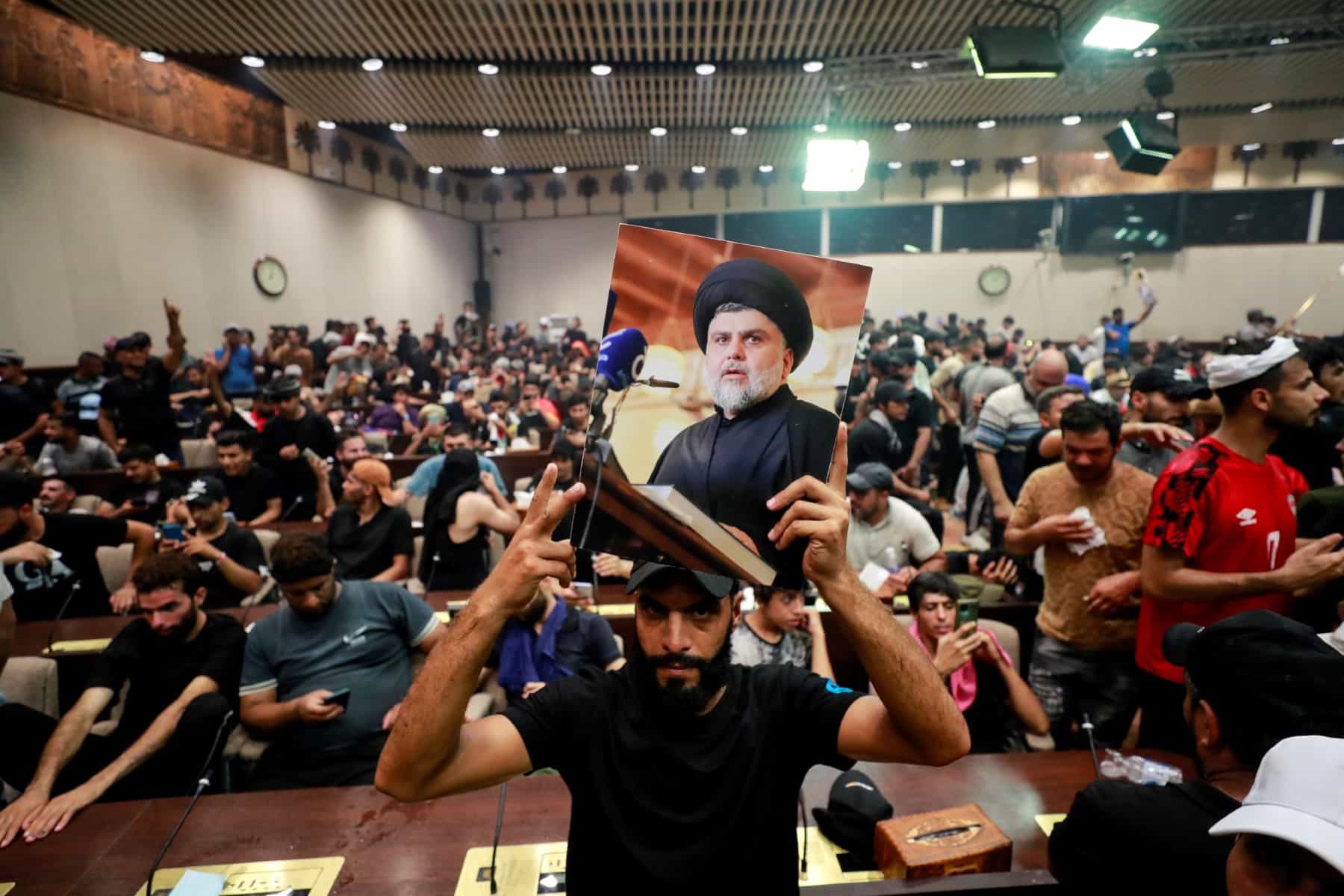Supporters of Iraqi cleric Moqtada Sadr penetrated Baghdad’s heavily fortified Green Zone on Saturday, occupying parliament with no plan to leave.
In a deepening political crisis, it is the second time in days that Sadr supporters have forced their way in to the legislative chamber, months after elections that failed to lead to formation of a government.
“The demonstrators announce a sit-in until further notice,” Sadr’s movement said in a brief statement to journalists carried by state news agency INA.
Supporters of Sadr, who once led an armed group against US and Iraqi government forces, oppose the recently announced candidacy of Mohammed Shia al-Sudani for prime minister.
“We don’t want Mr Sudani,” said one protester, Sattar al-Aliawi, 47, in the parliamentary gardens.
The civil servant said they were protesting “a corrupt and incapable government” and would “sleep here”.
He added, “The people totally refuse the parties that have governed the country for 18 years,” since a US-led invasion toppled dictator Saddam Hussein.
Demonstrators inside the legislature waved Iraqi flags and pictures of the cleric.
They crowded the chamber where some sat at lawmakers’ desks while others milled about, raising their mobile phones to film the occupation.
‘The people are with you’
They entered after thousands of protesters had massed at the end of a bridge leading to the Green Zone before dozens pulled down concrete barriers protecting it and ran inside, an AFP photographer reported.
Security forces had fired tear gas and water cannon near an entrance to the district, also home to foreign embassies and other government buildings.
Some protesters on the bridge were injured and carried off by their fellow demonstrators.
The health ministry said at least 100 protesters and 25 members of the security forces had been hurt.
“All the people are with you Sayyed Moqtada,” the protesters chanted.
Sadr’s bloc emerged from elections in October as the biggest parliamentary faction, but was still far short of a majority.
Sadr, long a player in the country’s politics, has a devoted following of millions.
His supporters oppose the candidacy of Sudani, the Coordination Framework’s pick for premier.
The protests are the latest challenge for a country trying to overcome decades of war.
Despite oil wealth and elevated global crude prices, Iraq remains hobbled by corruption, unemployment and other problems which sparked a youth-led protest movement in 2019.
‘Revolution’
Saturday’s demonstration came after crowds of Sadr supporters breached the Green Zone on Wednesday. They left two hours later after Sadr told them to.
After the latest occupation began, the Coordination Framework called on “the popular masses… to peacefully demonstrate in defense of the state and its legitimacy.”
The United Nations Assistance Mission for Iraq said the “ongoing escalation” was deeply concerning.
“Voices of reason and wisdom are critical to prevent further violence,” it said in a tweet.
The current Prime Minister Mustafa al-Kadhemi in a statement expressed regret that “political escalation increases tensions in the street.”
“We are here for a revolution,” said one protester, Haydar al-Lami.
In June, Sadr’s 73 lawmakers quit their seats in a move seen as seeking to pressure his rivals into fast-tracking the formation of a government.
Sixty-four new lawmakers were sworn in later that month, making the Coordination Framework the largest in parliament and triggering the fury of Sadr’s supporters.
“We would have liked them to wait until the government was formed to evaluate its performance, to give it a chance and to challenge it if it is not,” said Ammar al-Hakim, whose Hima movement is part of the Coordination Framework.
“The Sadrist movement has a problem with the idea that the Coordination Framework will form a government,” he said in a recent interview with BBC Arabic.








